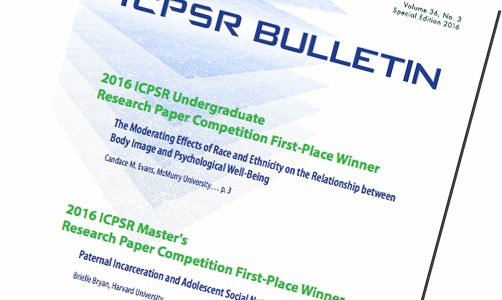Infant health & characteristics in Add Health
Add Health data include a variety of infant health measures for two generations: Add Health respondents and respondents’ biological children. Add Health respondent birth characteristics were reported by the Add Health respondent’s parents while the Add Health respondents provided information on birth characteristics of their own biological children. Information on prenatal care, gestational age, birth weight and breastfeeding are included in the Add Health datasets.
Current data collection efforts for Add Health Wave V and the Add Health Parent Study include survey questions concerning the pregnancy and birth of the Add Health respondents and their biological children. Please refer to the study webpages for more information on ongoing data collection: Add Health Wave V, Add Health Parent Study
This research highlight focuses on infant health as part of World Breastfeeding Week, which is August 1-7, 2016. Add Health twitter will feature research on infant health and characteristics throughout the month of August so stay tuned!
Publications
To date, Add Health researchers have published 75 journal articles, conference papers/proceedings and theses concerning pregnancy and birth characteristics. To view a full list of publications on breastfeeding, birth weight and gestational age, please click here. These publications are all included in our database of over 6,000 references.
Measures
Below are brief descriptions of measures collected at previous waves which are available in existing datasets, as well as information on measures which are collected during ongoing fieldwork. Variable names provided in parenthesis hyperlink to the corresponding ACE online codebook page for the variable.
Prenatal care
Respondents were asked about prenatal care obtained for their biological children during Waves III and IV. The Wave III interview included several questions about the respondent’s or partner’s visits to a doctor or nurse-midwife for prenatal care or pregnancy checkups (H3PG11, H3PG13, H3PG14, H3PG15, H3PG16). Wave IV data also includes measures on prenatal care and pregnancy checkups (H4PG12, H4PG13).
Gestational Age
Currently available data on gestational age refer to the respondent’s biological children. During the Wave III in-home interview, respondents were asked whether their biological child was born before 40 weeks (H3LB7) and if so, how many weeks early the child was born (H3LB8). During the Wave IV in-home interview, respondents were asked how many weeks or days before or after the due date their child was born (H4LB9W, H4LB9D). For the first time in Add Health, the Wave V and Parent Study surveys are collecting data on whether the Add Health respondent was born preterm.
Birth weight
Add Health data includes measures for the respondent’s birth weight as well as the birth weight of the respondent’s biological children. At Wave I, the respondent’s parent was asked to provide the respondent’s birth weight in pounds and ounces (PC19A_P/PC19B_O), while Add Health respondents were asked for the birth weight of each of their biological children at Waves III and IV (H3LB5A/H3LB5B, H4LB6P/H4LB6O). At Wave IV, if the respondent did not know the birth weight in pounds and ounces they received a follow up question asking if the baby weighed less than 5.5 pounds (H4LB7).
The Add Health Wave V survey asks respondents to report the birth weight of their biological children while both the Wave V and Parent Study surveys include questions concerning the Add Health respondent’s birth weight. Respondents are asked to self-report their birth weight for the first time during Wave V and the project plans to link administrative data from birth records, including birth weight, to the longitudinal record of a subset of Add Health respondents.
Breastfeeding
During the Wave I parent interview, parents reported the length of time the Add Health respondent was breastfed (PC20).




